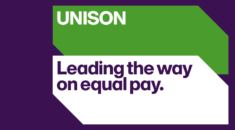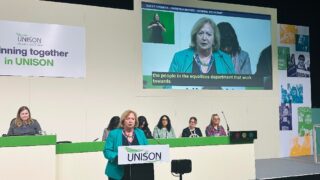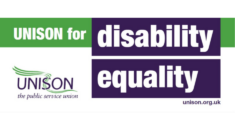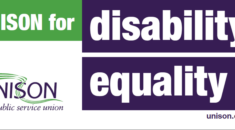Sharon Greene, national women’s officer

It is depressing, but not surprising, that the latest ONS figures show that the full-time pay gap has decreased by just 0.2% in the past year, while the part-time/full-time figure is stagnant at 19.2%.
Over the past five years, the government has carried out a series of consultations:
- The Modern Workplace in 2011;
- Equal Pay Audits in 2013;
- Section 78 of the Equality Act (pay transparency) in 2015;
- and the latest on the gender pay gap, with a focus on older women, at the end of last year.
Each time, UNISON responds – and frankly the job becomes easier, because we repeat the same things.
We say, time and time again, that there needs to be decent, quality, well paid part-time work if we are ever to close the gap; that there needs to greater sharing of caring responsibilities – at both ends of life; that we need greater flexibility in working hours and more support for carers if women – who still bear the brunt of caring responsibilities – are ever to be on a level playing field.
Young women need better careers advice – so they understand their earnings potential before they opt to follow certain career paths leading to an almost certain low-paid dead end.
Of course, the current system for dealing with equal pay cases needs a complete overhaul to make it effective and efficient, rather than the lumbering, bureaucratic machine we have now.
And while forcing women to pay employment tribunal fees when they have been unfairly treated may be an effective way to lower the number of cases, it’s no way to close the gap.
As for the voluntary measures which the government favours, and the tokenistic measure of increasing the numbers of women on boards: they have failed spectacularly.
If employers were prepared to take voluntary measures to close the gender pay gap, UNISON would not have had to lodge tens of thousands of equal pay cases in the public sector – and don’t forget, the public sector leads the way on the gender pay gap, where it stands at 11.4%, compared to 17.2% in the private sector.
If employers were prepared to take real action to close the gap, we would not be arguing about the “burden” of pay reporting – or whether such reports should include the bonus payments, overtime and shift allowances which are readily available to male employees, much less so to women.
And if we were in a society which was genuinely committed to equality in the workplace, posts such as this would not be faced with the inevitable angry response that if women want equal pay they should just stop having kids, stop expecting maternity leave, work every hour under the sun and stop whining about how hard life is.
Which rather misses the point that society needs mothers and children, and that women are uniquely designed for the job of childbirth.
Losing a few months out of the workforce while the next generation are born doesn’t actually make them any less capable or dedicated than they were before children, it just makes them a little less available 24/7 for a relatively short while in a career span.
Sadly, recent Equality and Human Rights Commission research shows that women still experience devastating levels of pregnancy discrimination. It’s short-sighted, unlawful and immoral – but it is without doubt that it still goes on.
So in ♡unions week – it’s time to actually respond to the issues we raise, time and time again.
Not to make the token gestures; not to consult on another tiny corner of the big picture – but to work with us, in partnership with employers rather than as adversaries, to close that gap.
Share the love this ♡ Unions Week and tell us why you ♡ UNISON.











